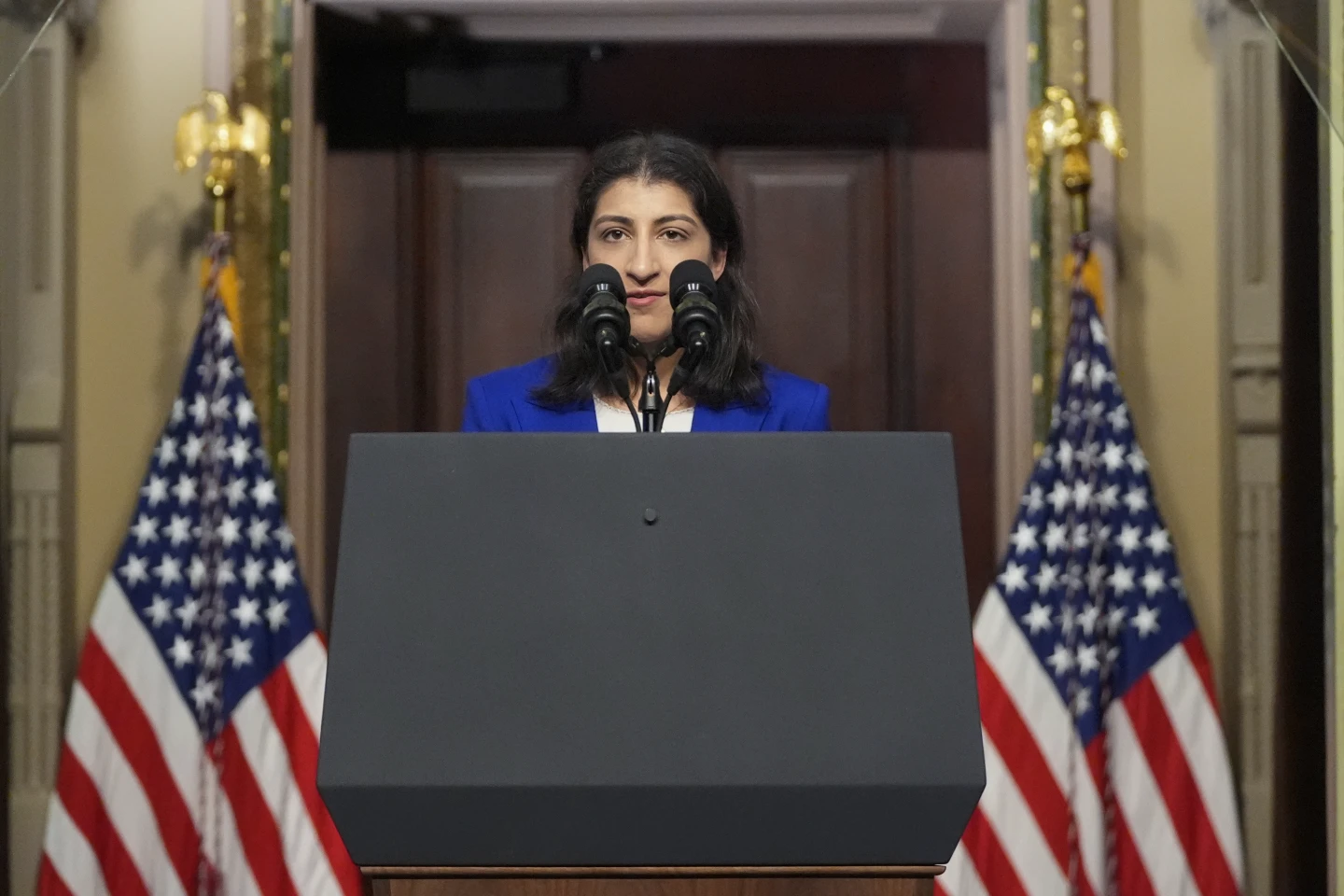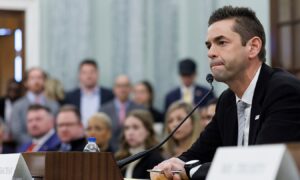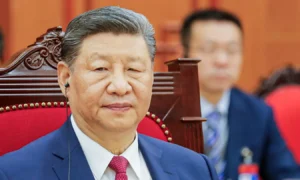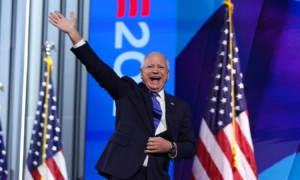The US antitrust watchdogs who pounced on Big Tech and stifled corporate dealmaking under President Joe Biden’s administration may be given a shorter leash by Donald Trump when he returns to the White House next year.
Although regulators began cracking down on tech behemoths like Google and Facebook during Trump’s first term, most experts expect his second administration to relax antitrust enforcement and be more open to mergers and acquisitions after years of hypervigilance under Biden’s watch.
One of the primary reasons for the projected pivot is popular expectation that the major architects of the Biden administration’s harder position, Lina Khan of the US Federal Trade Commission and Jonathan Kanter of the Justice Department, will not be part of the Trump administration.
Both the Justice Department and the FTC did not reply to requests for comment.
Trump’s appointment of billionaire Elon Musk, dubbed “Technoking,” to lead an advising effort aimed at lowering government expenditure may result in fewer staff and regulators trying to rein in wealthy corporations.
And Trump’s pick of outspoken loyalist Matt Gaetz as US Attorney General has added to the uncertainty. Gaetz has repeatedly criticized social media platforms’ rules, claiming they stifle conservative ideas, and has occasionally joined efforts to break up Big Tech. He also has a history of supporting causes that Trump champions.
“There are going to be some profound changes” in antitrust rules, predicts John Kwoka, an economics professor at Northeastern University who has previously worked on antitrust issues with the FTC and the Justice Department. “Elon Musk could end up having a larger-than-life influence on policy, and that isn’t something we have seen before, where a single person whispers in the ear of the President.”
Other specialists interviewed by The Associated Press mostly concur with Kwoka’s viewpoint. However, they believe it is highly unlikely that the projected shift will result in authorities dropping ongoing antitrust proceedings against Big Tech companies, in part because those legal battles coincide with populist concerns about the industry’s growing power and influence over people’s lives.
“We are in uncharted territory, but the idea of taking on Big Tech still has legs,” said Rebecca Allensworth, a Vanderbilt University law professor who studies antitrust concerns.
However, the change of the guard may provide an opportunity for Google, Apple, Amazon, and Facebook to avoid lengthy legal battles and reach settlements with a president who enjoys making deals.
“Maybe Big Tech should buy a copy of ‘The Art of The Deal’ to figure out how to best negotiate with this administration,” said Paul Swanson, an antitrust attorney at Holland & Hart. “I won’t be surprised if they find ways to reach some accommodations and we end up seeing more negotiated resolutions and consent decrees.”
While the outcome of existing antitrust cases remains unknown, practically everyone believes the Trump administration will be more open to mergers that often promise lower prices and other benefits to consumers.
The ground is set for “a golden era for deal flow among public and private tech players over the next 12 to 18 months,” Wedbush Securities analyst Dan Ives wrote in a research note following Trump’s reelection.
It’s a commonly held opinion among investors, which has fueled a rally in the general stock market since Election Day and boosted shares in companies attempting to close transactions announced during the Biden administration. One such example is Capital One Financial and Discover, which plan to merge via a stock swap next year. Capital One’s market value has risen by 11%, while Discover’s market value has risen 16%.
The administration transition might also have an impact on the proposed merger of the country’s two largest supermarket chains, Kroger and Albertsons, who agreed to merge in 2022 for $24.6 billion. However, the FTC filed a lawsuit in federal court earlier this year to prohibit the merger, arguing that it would limit competition, resulting in higher pricing and lower salaries for employees. However, the two companies argue a merger would allow them to decrease prices and compete with larger rivals such as Walmart.
Given that supermarket costs remain a hot topic among customers still reeling from post-pandemic inflationary surges, Allensworth believes the Trump administration is less likely to “abandon or soft pedal” the FTC’s challenge to the Kroger-Albertsons merger.
In another case that has sparked outrage among customers, the Justice Department is suing Ticketmaster and its corporate parent Live Nation, alleging that their tactics are raising the cost of concerts and other forms of entertainment.
Despite grassroots support for the case, Live Nation management believe they can maintain the current arrangement under a Trump president.
“We are hopeful that we’ll see a return to the more traditional antitrust approach, where the agencies have generally tried to find ways to solve problems they see with targeted remedies that minimize government intervention in the marketplace,” Live Nation President Joe Berchtold said during a conference call with investors shortly after the election.
Deals that were scuttled by the Biden administration may find fresh life with Trump in authority. American and JetBlue are already talking about reviving a collaboration after an earlier deal was derailed by a legal challenge by Biden’s antitrust team – a result that was recently upheld by a Boston appeals court.
“We are still looking into it,” American Airlines CEO Robert Isom stated shortly after the election. “We will take everything that the court has fed back, and we’ll put that into consideration.”
Similar discussions are certainly going place among other executives re-examining agreements that appeared off-limits during the Biden administration, said Colin Kass, an antitrust attorney at the law firm Proskauer Rose.
“It’s almost certain there were deals that people put the brakes on because of antitrust concerns and those will be revisited to decide whether they still make economic sense,” according to Kass. “If so, they will submit it to the DOJ. And if a correction is required, it is more likely to be implemented than simply blocked. So it’s worth taking a gamble on closing these agreements.”
In terms of efforts to deconstruct Big Tech monopolies, the Trump administration’s first action against Google is now before a federal court, who determined in August that the company’s dominant search engine is an illegal monopoly. U.S. District Judge Amit Mehta in Washington, D.C. is currently deciding what kind of punishment to impose on Google. The ruling is due by August of next year.
In a preliminary plan filed last month, the Justice Department suggested that it would try to persuade Mehta to order that crucial sections of Google be divided up to restore competition.
The Justice Department’s final draft of recommended fines is due on Wednesday. The possibility of the Trump administration taking over next January is unlikely to influence the filing, according to David Olson, an associate law professor at Boston College. Kanter and the rest of the team he formed at Justice will have one more chance to outline their case against Google.
A reshuffled team of antitrust regulators chosen by Trump could still reverse course from the position outlined in the Nov. 20 filing and take a different view when Mehta preside over the hearings on the proposed penalties next spring.
“It is disheartening to see,” Kwoka commented. “A stricter strategy was required since technology corporations, in particular, had been allowed to operate without significant restraint for the previous 20 years. And then we all realized it would take more than four years to implement a stricter policy and demonstrate its effectiveness. Now, it might not happen.”









